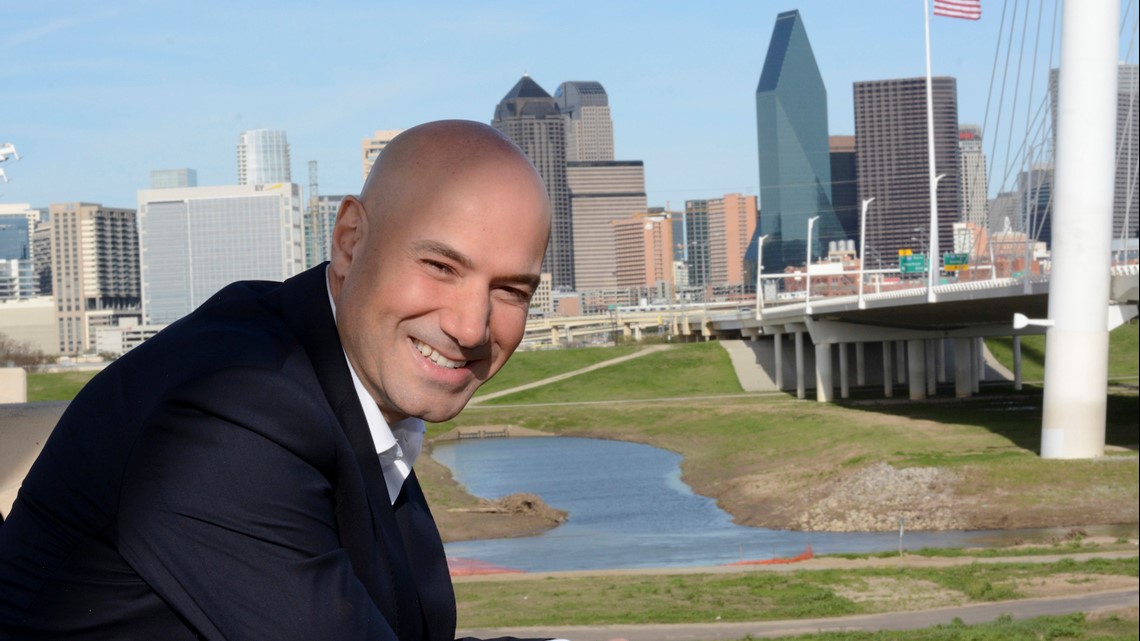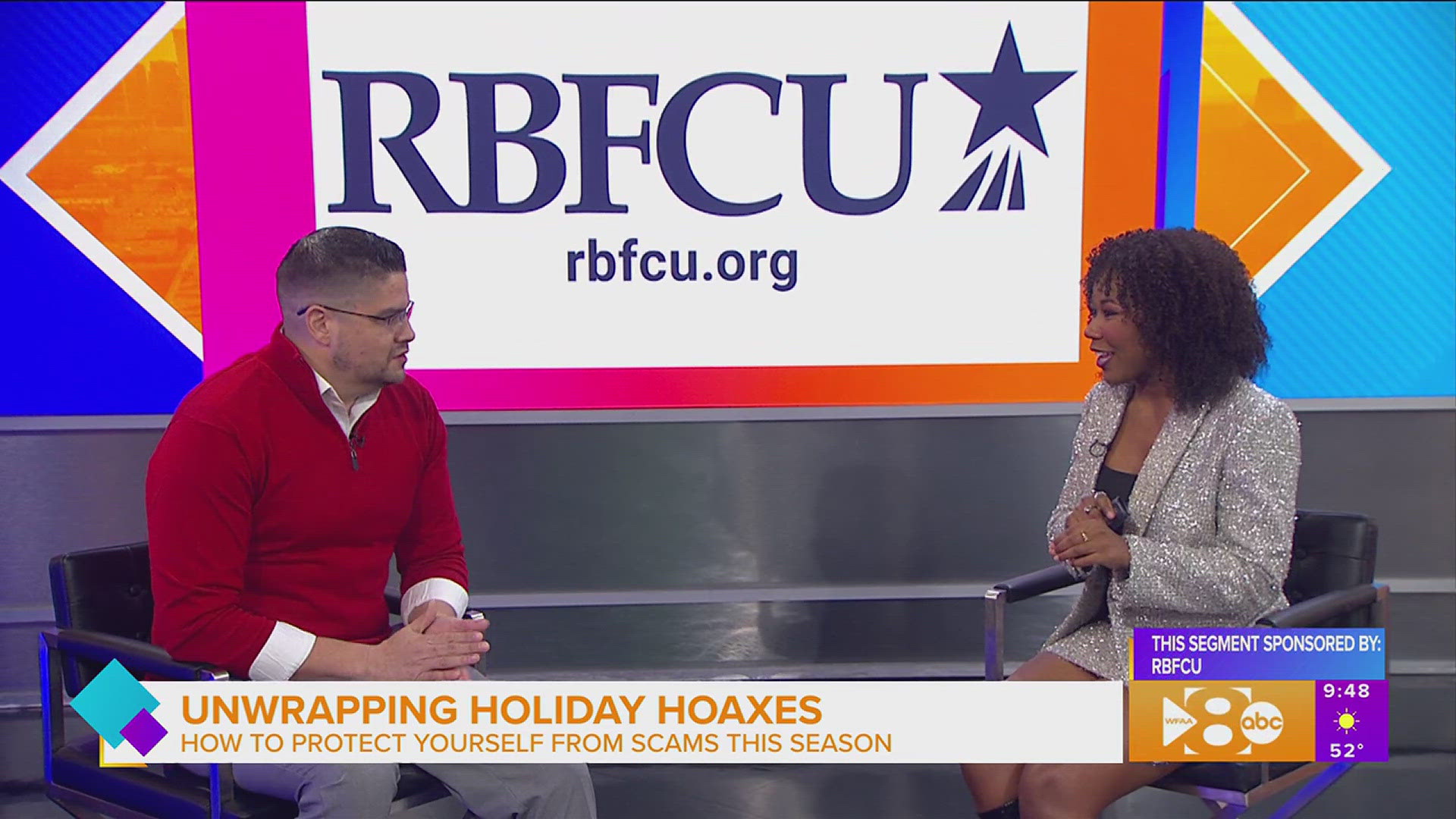Arrive at the office by 7 a.m. Work a 20-hour day. Go home to shower, eat frozen ravioli and catch two hours of sleep. Wake up and do it all over again.
This was Lani Lazzari's life for six weeks. Her business, Simple Sugars, was trying to survive the same sales onslaught that other businesses in the Mark Cuban Companies portfolio experience after they appear on the hit TV series Shark Tank.
"I literally didn’t go outside while the sun was out for that entire time," Lazzari said. "It was crazy."
For those unfamiliar with the hit on ABC (which debuts its 10th season Sunday night on WFAA at 9 p.m.), an entrepreneur pitches his or her business to a handful of potential investors.
After the investors (known as sharks) pepper the business owner with questions, they compete against each other to secure a deal. If you're a company on Shark Tank, you've survived a lot of cuts. Show producers pore over 40,000 applications. After whittling that number down, around 200 lucky participants travel to Los Angeles to film during a one-week stretch in the summer where the sharks' days are packed with pitches.
Dallas billionaire Mark Cuban has been a permanent shark since Season 3. Even if viewers see Cuban and the business owner agree to a deal, that doesn't necessarily mean the company becomes part of Mark Cuban Companies.
Abe Minkara and his team still have to do their diligence.
"When you see the handshake deal, it’s not the end," said Minkara, director of business development for Mark Cuban Companies. He's part of a team that oversees operations of the Shark Tank businesses. "It’s just the beginning."
While Cuban has a good understanding of the business he just invested in — each clip is edited down from the original pitch which usually lasts one to two hours — his legal team at Mark Cuban Companies must dig deeper.
The group looks for any red flags: Maybe sales don't match what the entrepreneur said in the pitch. Or the intellectual property isn’t airtight.
"Due diligence can take three months or more," Minkara said. "When everything’s in order and it’s formalized and the documents are signed and the money’s transferred for the equity that was agreed upon, then the deal starts."
Now comes the biggest break many of these businesses will ever get: Their company appears on television.
Cuban's team gives each entrepreneur two weeks before their episode airs to help them prepare for the thousands of people that will come to their website. After getting her two-week warning, Lazzari consulted with Mark Cuban Companies to figure out how much product her business would sell the night the episode aired. The estimate was $20,000.
That was a big figure for Lazzari, who founded her natural skin care company when she was 12. Simple Sugars recorded $80,000 in sales during the 12 months prior to the episode airing.
With the air date nearing, Mark Cuban Companies ensured the Simple Sugars website wouldn't crash with the influx of traffic. Having the site go down during the show would result in missing out on thousands of customers. As for sales, Lazzari decided to play it safe. She had $35,000 worth of product ready to go the night the show aired.
"We ended up blowing that estimate out of the water," Lazzari said. "We sold out almost instantaneously as soon as our pitch started."
Simple Sugars sold $250,000 worth of product the night Shark Tank aired. Over the next two days, that figure climbed to $650,000. The website stayed up the entire time, and Lazzari spent the next six weeks catching up on orders and hiring more employees.
The company posted just under $2 million in sales last year, and Lazzari, 24, still sends weekly email updates on her business to Cuban directly. The Pittsburgh-based business now has 13 employees.
Lazzari projects Simple Sugars to be in the $5 million to $7 million revenue range in three years. And after not being able to look at them without suffering traumatic flashbacks, she can eat ravioli again.
'Drastic action'
Minkara sat in a board meeting with the leadership of Power Practical, a Salt Lake City-based company that successfully pitched Mark Cuban in the summer of 2013 on Shark Tank. The company made a product called the Power Pot, a pot that campers use to produce energy by boiling water. The situation was dire, as the company had to make a move to survive.
Within six months, Power Practical would run out of money.
"They have to take drastic action," Minkara said. "Otherwise, they are done."
At the end of 2015, the company decided to focus almost exclusively online. The low margins from brick and mortar sales were dragging the company down. When a crowdfunded project for the Luminoodle, an LED lighting strip, took off, the company made the product an online exclusive.
"The sell through velocity of the Luminoodle was so much higher than the Power Pot that we decided to pivot to lighting," said co-founder David Toledo.
So, not only did Power Practical change its selling strategy, it switched the identity of the business to become a lighting company. With the new strategy in place, the company sold about $6,000 of product in January 2016 on Amazon. They ended 2016 with $1.3 million in sales.
Toledo credits Minkara and Mark Cuban Companies for helping push the company in a new direction, and for making the introductions with the team at Amazon Exclusives.
The work Mark Cuban Companies does for its portfolio businesses doesn't end with an episode’s airing. It offers everything from help with graphics to accounting to legal services for its nearly 80 portfolio companies from Shark Tank. And the services are free.
Through the years, Mark Cuban Companies hasn't always picked successful ventures. Minkara said they've had a few companies go out of business and have a few more he would classify as hobby businesses. When faced with a tough situation of adapting to stay alive, such as the one Power Practical faced, Minkara said not all entrepreneurs execute.
"I think in most cases when companies don’t make it or they don’t grow, it’s when the entrepreneurs don’t grow or really lack on execution and don’t have a sense of urgency to act now," Minkara said. "Every day as an entrepreneur, you have to make a move. It really is about building momentum. And if you don’t take action, you’re losing momentum."
Unlike a private equity firm, Mark Cuban Companies is a minority investor. They can't go into a company and start telling employees what to do. Everything Minkara and his team propose to a portfolio company has to create value. For example, if a company focuses more online, its margins must improve.
"By doing that, we’re been very successful at building those relationships with our entrepreneurs early on and building trust," Minkara said. "In some cases, we have small companies that are hobby businesses, and it’s really amazing to see them evolve into actual businesses with employees and millions of dollars in sales."


Power Practical is back on its feet. The company did $4 million in sales last year, and Toledo said the company is eyeing an exit. They've had offers to sell before, but that was in the early stages and they wanted to know what the company would ultimately become.
Because they invested with Cuban, Toledo said Power Practical has the luxury of waiting until the right deal comes along, whether that be selling to private equity or going the strategic route.
"Mark’s a little different," Toledo said when comparing him to other investors. "I think Mark is happy if the company’s making a lot of cash and paying out dividends. That works out for both the founders and for him. Whereas, the traditional venture capital wants you to sell your business so you can get your multiple."
Cuban employs the strategy with his other Shark Tank portfolio companies, too. For Cuban, it's OK to sit back and let the business keep growing.
"I prefer ongoing cash flow," Cuban said. "It reflects a well-run (company) that is not under any pressure to sell. They can run the business on their own terms and invest organically in its growth."
Bad PR
Early in his career, an entrepreneurial Minkara’s wish was granted: a New York Times story talking about the shave gel market, with his company mentioned.
His business, Bold For Men, was on the upswing. It was getting the publicity it needed to take the next step. To capitalize on momentum, he hired a public relations firm in New York.
It was a mistake. The publicity the company saw from working with the PR firm wasn't enough to justify the high costs. In fact, Minkara says when Cuban asked him in an interview what the biggest mistake of his career was, he mentioned the PR folly.
"And he said if I would have read his book, I would have saved a lot of money," said Minkara, who has been with the Mark Cuban Companies for five years now. "Because in his book, he says specifically, ‘Do not hire PR people if you are a startup.’"
Minkara works well with the portfolio companies because he is an entrepreneur. The native of Beirut, Lebanon, who grew up in Paris first moved to Dallas in 2000 for a job with a Verizon team tasked with launching verizon.com. After the site launched, he remembers watching the first Verizon bill get paid online.
"It was like we just landed a rocket on the moon," Minkara said. "Everybody was going wild."
What Minkara liked about his time at Verizon was how the experience felt like a startup. He was on a separate team working on the website, pretty much left alone to achieve an aggressive launch date.
He is one of 15 employees at Mark Cuban Companies, which is made up of people in finance, accounting, legal and business development departments. Minkara also works with non-Shark Tank businesses in Mark Cuban Companies, like logistics firm Selery Fulfillment and apparel company Three Commas.
The team at Mark Cuban Companies advises its companies when to exit. So far, five companies Cuban invested in on Shark Tank have exited, Minkara said. Does the boss want to see that exit number higher for his Shark Tank companies?
"It’s irrelevant," Cuban said. "As long as the companies and their entrepreneurs are doing well, I’m happy."
Minkara declined to share Mark Cuban Companies’ annual revenue or what the company made off those exits, but he said the exits have seen good returns. He doesn't have pressure from Cuban to push the portfolio companies to exit more, but Minkara does expect some additional exits in the next couple years.
"It’s just the beginning," Minkara said. "If you want to look at Shark Tank as an investment portfolio, it’s six, seven years old."
Does he ever get the itch to go back out into the entrepreneur scene and start a company? Minkara says no, because he's around so many startups everyday that it keeps his interests piqued.
And his shave gel company is still around on Amazon. It's just running on autopilot now, but Minkara has to buy his shave gel somewhere.
"That’s why it’s still there, because I use it," Minkara chuckled, rubbing his freshly shaved head. "I’m my own best customer.”



